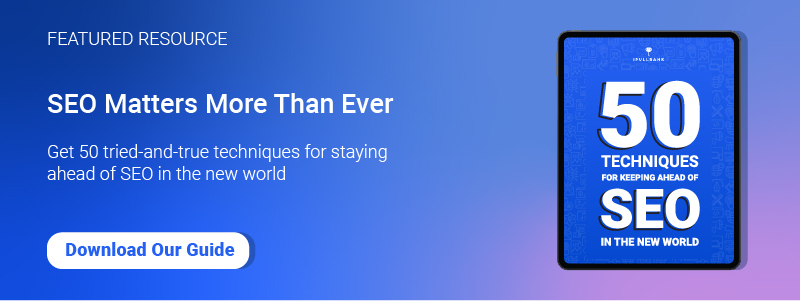On January 22nd, Google announced that they would no longer be duplicating results from Featured Snippets within the rest of the core SERP or the Knowledge Graph. We’ve long heard that the Featured Snippet drives less clicks than being in the core Organic listings, so this news triggered a bit of a panic across the space.
In this episode of Rank and File, I talk about how you should strategically assess and approach Featured Snippets as a part of your SEO efforts moving forward.
Video Transcription
Intro
Welcome back to another edition of Rank and File. I’m your host, Mike King, Managing Director and Founder of iPullRank. Today what I want to talk about is featured snippets. So Google made a change on January 22nd and the whole SEO community lost their minds as they tend to do. And if you know anything about me, you probably know that I don’t think it’s that big of a deal.
What did Google do?
So you know, what did Google do? Basically what they did is they removed the featured snippet from ranking and also the organic listing. So if you rank top 10 and you have the featured snippet, you no longer have both. You just have the feature snippet and if you’re also in the knowledge graph box, then you’re removed from that as well.
Why does it matter?
And so why does it matter? Well, as we know from a many studies that have been done, I’m also using data from Jumpshot, RIP to that company, I think is really messed up what’s going on down there. But data from them, you saw a lot of studies that really speak to this idea that people don’t really click on the featured snippets, they click on the other results instead. So if you’re relying on traffic for keywords that you now have featured snippets for, you may lose that traffic.
But one thing I want to note here is that organic search can be a branding channel. It may be good enough, or in fact it may be more valuable to your brand for you to be in that featured snippet. Maybe you’re not just thinking about driving clicks. Maybe you want to put these answers top of mind for people around whatever the query might be. So don’t just leap and think like, Oh, we’re losing traffic. This is a terrible thing. There may be queries where there’s value in you just being in that featured snippet.
What’s the impact?
And so we also truly don’t know what the impact is. We have an idea, again based on these different studies that we’ve seen in our space, but the reality of it is this is a dramatic change to how the SERP operates. And we may see that people end up clicking on that featured snippet instead.
What should you do?
So really, what do you do? You know, I want to give you something actionable here. Well, one, you want to review the impact first. So take a look at Google search console. Also looking at your rankings tool that will indicate whether or not you have featured snippets, what keywords you have them for, and then look to see what the visibility in the clicks are to those keywords after and before this change that happened on January 22nd.
And so if ultimately what you’re seeing here is that there are drops in that traffic and you really care about that for these target keywords, then implement the data-nosnippet attribute to the code blocks where that code is, where that content is that Google is ultimately extracting.So then that way you don’t have that feature snippet anymore. And so ultimately what happens is you may get back that ranking position that you had before.
And that’s the thing we truly don’t know yet. It’s too early to see if that really has the impact that we, and so moving forward, you’re also gonna want to be strategic. So target keywords that work for the brand. Again, organic search can be a branding channel, so there may be queries where it makes sense for you to just go after those for featured snippets.
And then also target keywords that you don’t rank on the first page for. So it doesn’t make sense for you to cannibalize your traffic if you are currently ranking number five or number three, or number two for query. And then dropping off the first page because you now have that featured snippet. So only target the keywords that you’re not ranking first page and then go after your featured snippets that way.
Conclusion
So I hope that helps. I hope that brings down the hysteria a bit and you know, we can move forward and be strategic about how we’re gonna do our organic search around featured snippets. I’ll see you tomorrow. Peace.

Now, over to you, what are you trying out now that Google has made this change?






